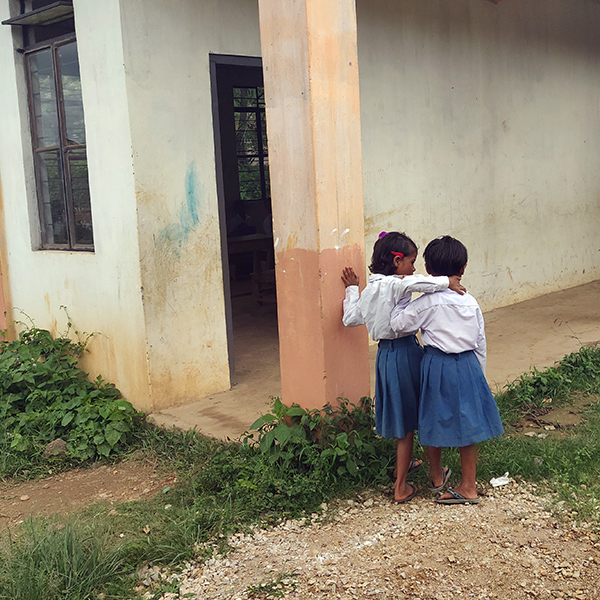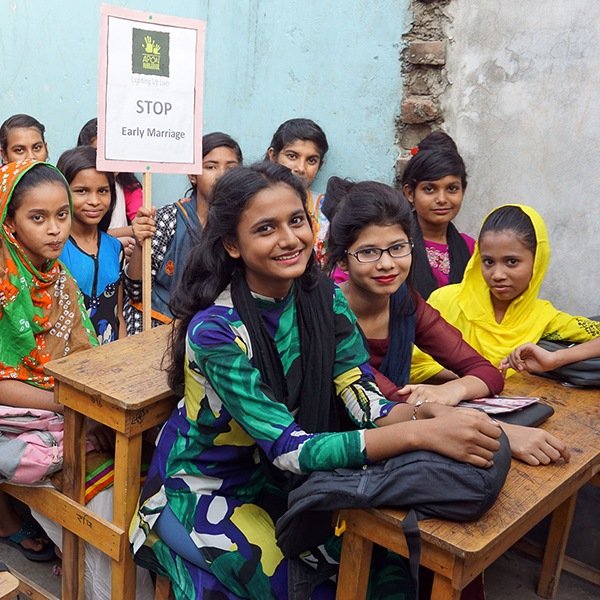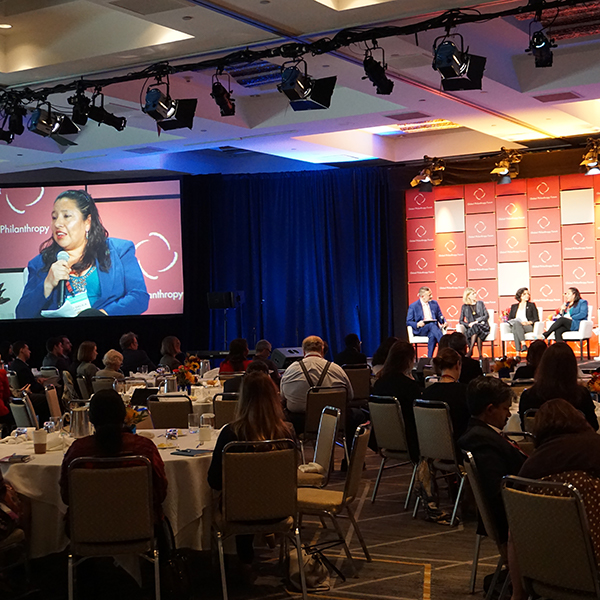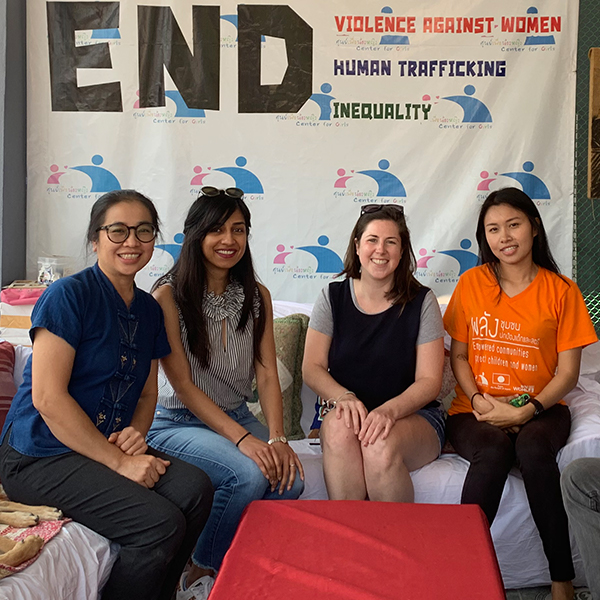My taxi driver refuses to drive into Sonapur, and insists on dropping me on the main road instead. “Bas, do minute kas raasta hai, aap chal lo. Hum udhar nahi jaate,” he says irritably. “We don’t go there, however, you can walk it, two minutes should suffice.”
Literally translating to The Land of Gold in Hindi and Urdu, Sonapur is home to one of Mumbai’s notorious red-light areas. It’s just a 10-minute drive from Asia’s largest water treatment plant (solar-powered) in the Mumbai suburb of Bhandup, fulfilling the city’s dream of a 24-hour supply of potable water. And yet, in Sonapur, residents have to line up in the lanes at specific times to access a municipal water pump.
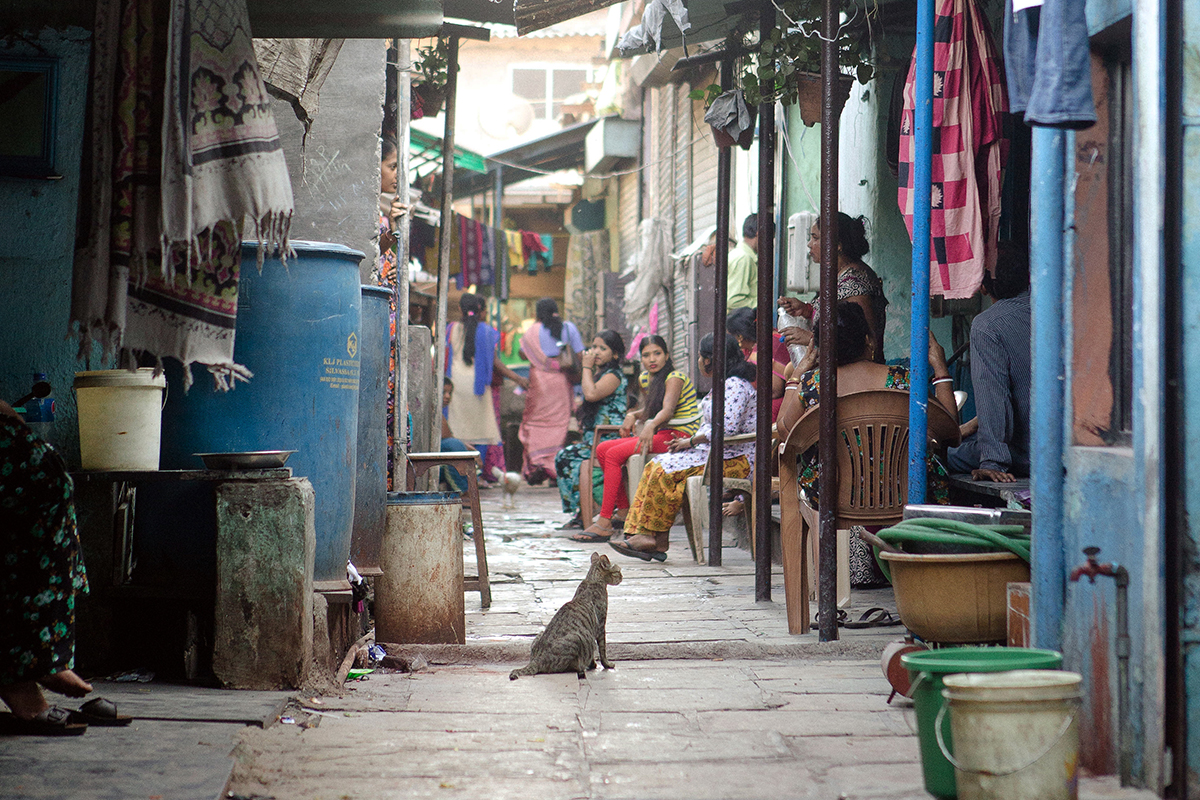
Mumbai is my hometown, but I had never been to Sonapur. Hidden in plain sight, the entrance to Sonapur is akin to that of the city’s many urban slum localities. The narrow lane ferries two-way traffic, with tiny shops and stalls on either side. Motorbikes, scooters, cycles, auto-rickshaws, and pedestrians alike slink away to the periphery to make way for cars. It’s a regular afternoon in Mumbai, as evidenced by the loud, incessant honking and frequent vehicle gridlocks.
I turn into an even smaller lane on the right and the ecosystem shifts. The walkway is flanked by jhopdas (make-shift huts) with open sewers running on either side. Women of varying ages have replaced the pedestrians and vehicles. Their dress code does not seem to be congruent with the working noon – it’s a split between gaudy saris and discolored nighties. Some of the women sit on plastic chairs and parapets, a few squat to the side while others stand, glancing towards the entrance of the galli (lane) every once in a while.
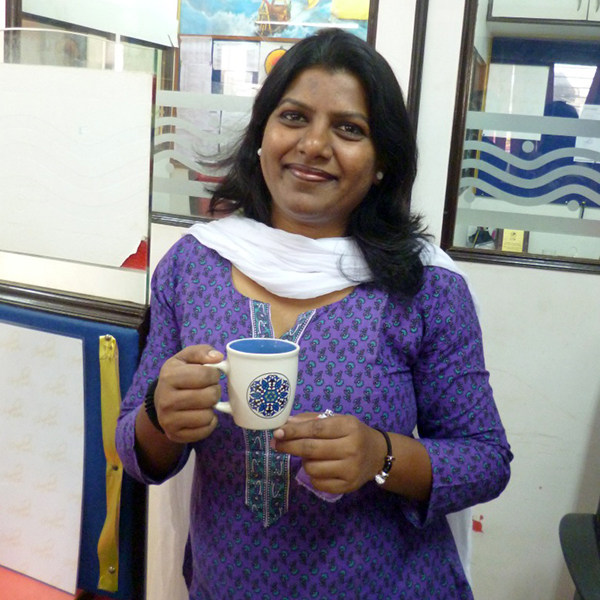
This is where I meet Anagha.
A woman in her early thirties, Anagha Khandagle works with Purnata, an organization seeking to end human trafficking by focusing on prevention at source, transit, and destination points. Its primary mission is to protect women and children from trafficking and restore survivors to a life of dignity, purpose, and economic independence.
More than familiar with Mumbai’s underbelly, Anagha leads Purnata’s rescue operations and is their key police liaison. We get talking and Anagha narrates her recent rescue investigation involving a young Bangladeshi woman and her ten-year-old daughter – both of whom who had been trafficked in 2014.
Living in abject poverty, the woman and her daughter, Sharmila*, had been lured to Kolkata on the false promise of a well-paying job as a house maid. Upon arriving in Kolkata illegally, they were sold to a brothel keeper in Mumbai’s Sonapur.
Since Sharmila was a minor, the brothel keeper offered to keep her ‘safe’ – away from the red-light area – and promised to find employment for her. To her horror, the woman later learned that her daughter had been sold to a similar establishment. Anguished, she came to Purnata for help.
Over the course of a few years, Purnata’s rescue team, comprised of Aaboo Varghese (Purnata’s Founder) and Anagha, worked tirelessly with Mumbai Police officers and the Deputy Inspector General of Police to locate Sharmila. Finally in 2018, through one of their informants, they learned that Sharmila had been sold and re-sold several times, from Mumbai to Delhi and had now been trafficked to a brothel in the red-light district of Sithaura in Bareilly (a city in northern India).
Aaboo, Anagha and the informant, along with a few police officers from Mumbai, went to Bareilly to rescue Sharmila. After being shuttled from one cold lead to another, they abandoned the wild goose chase and returned to Mumbai in vain.
Distressed by the plight of the young girl, Purnata decided to reignite the investigation three months later. However, this time there seemed to be little support for it, and they received no Mumbai police escort. Armed with a report from the Mumbai police investigation, Anagha and Aaboo traveled to Bareilly and met with the local police. In search of a lead, they began scouring the urban slums in Bareilly themselves. They spoke to several slum-dwellers and paan (betel leaf) shop owners.
As I walk with Anagha and listen to this story, I begin to understand how painstaking her role was. She recounts a number of visits to different police stations, multiple appointment requests, follow-up meetings (often futile) and phone calls. Her devotion to the case is astonishing.
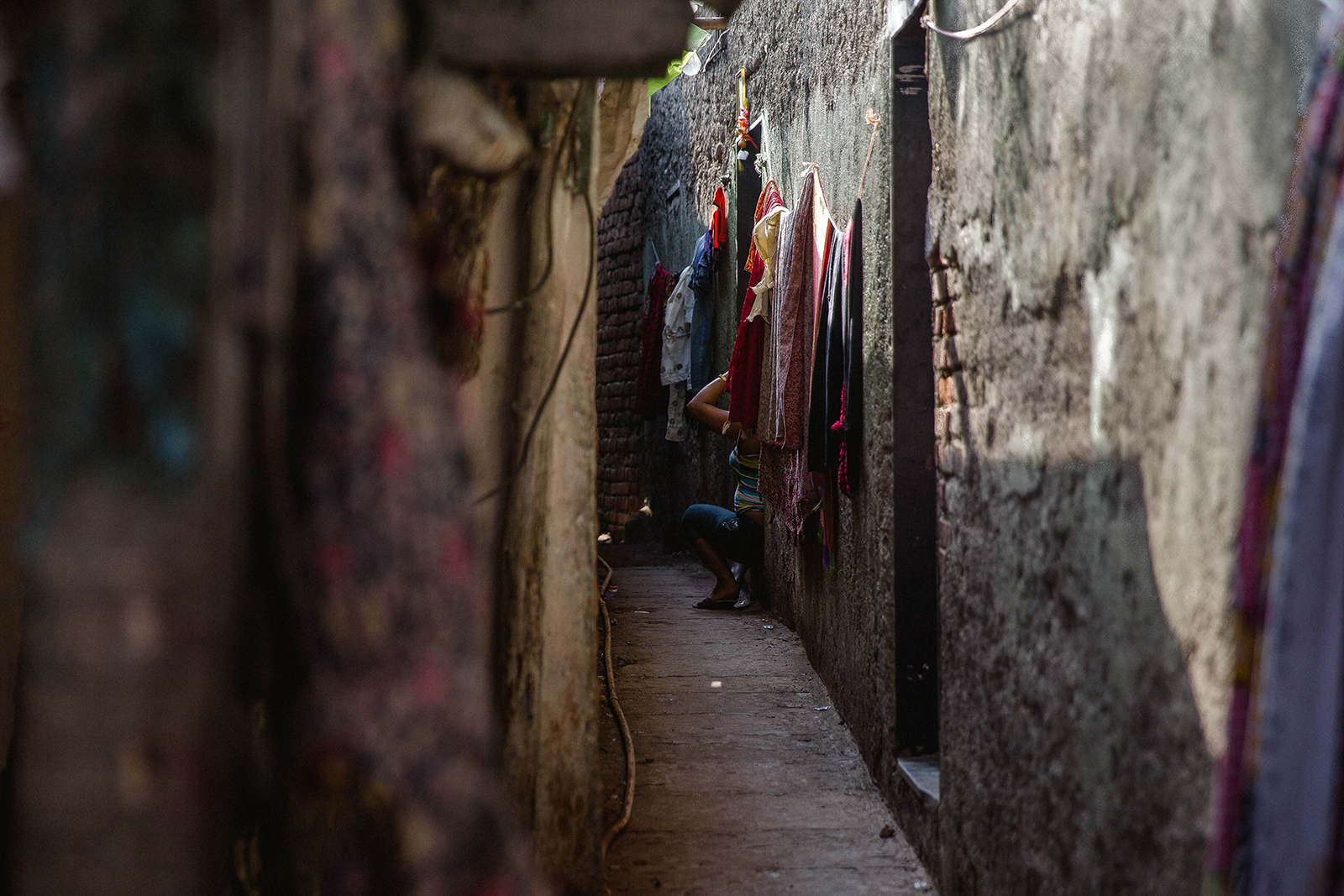
Fortunately, the Bareilly police were extremely supportive. A few officers from the Cyber Surveillance Cell and Bareilly’s police force were assigned to the case. On several occasions, these officers would work double shifts – their regular duty during the day and strategizing for this case in the evening. Many planning sessions and cups of chai later, it seemed like some progress had been made. They zeroed in on a potential suspect named Ajay.
To trap Ajay, Anagha pretended to be an out-of-work sex worker and called him for customer leads. Ajay put Anagha onto his wife Pooja, who was one of the prime movers in this endeavour. The second being her brother, Arvind. Pooja, however, recognized Anagha’s voice and switched off all their phones. She also gave Anagha’s number to several pimps who began badgering Anagha with offers and propositions. At this point, it seemed like the rescue team was back to square one.
Thankfully, an inspection of Pooja and Ajay’s call data records led them to Arvind, Pooja’s brother. An intense manhunt ensued and a few weeks later, the team discovered Arvind’s geographical location. The following day, the police team (with Anagha and Aaboo in tow), raided Arvind’s home and arrested him. Unfortunately, Sharmila was nowhere to be found. After a gruelling interrogation, the team gained access to Pooja’s coordinates. They contacted her and negotiated for Sharmila’s release in exchange for Arvind. The couple promised to drop off the girl at a pre-decided spot the next day as a barter.
Finally, Sharmila had been found.
The horrific extent of Sharmila’s abuse came to light upon a medical examination. Broken teeth and cracked ribs. She had cigarette burns, purple bruises, and bite marks on her body. Sharmila had been battered with bamboo sticks and metal rods. She was scared and cold. She was 16 years old.
The rescue team was keen on recording the victim’s statement straightaway, but Sharmila was too traumatized to speak. It was when Aaboo video-called her mother that Sharmila spoke for the very first time. A few days later, using information from Sharmila’s statement, the persistent rescue team made five arrests. A large trafficking ring was unearthed. Tragically, the key players absconded. But this rescue operation was a success – it was a testament to the might of the joint forces of civilian outfits and the police.
This triumph would have been unattainable without Anagha. She was the audacious force behind the operation.
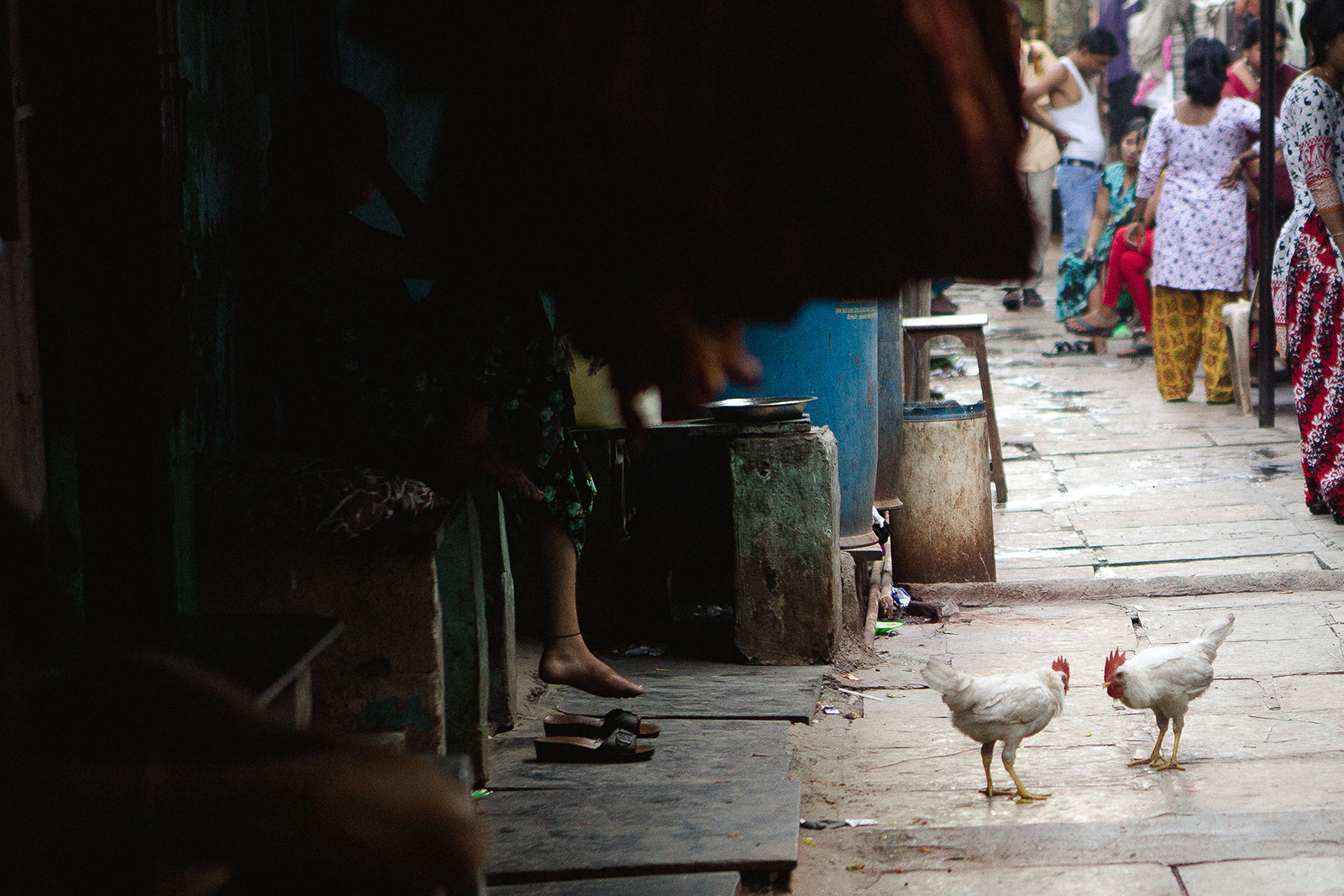
Though Anagha began working with Purnata just four years ago, her association with victims of sex work began when she was an undergraduate student. One of her classmates, Lali*, was the daughter of a sex worker, and belonged to a DNT community (Denotified and Nomadic Tribes of India, who have historically been in the lowest rung of India’s caste system). Unfortunately, this meant that the young girl was bullied and discriminated against. Lali confided in Anagha that her elder sister had been forced into the trade by her family, and that they were now pressurizing Lali to follow suit.
Her sister’s predicament frightened Lali. She wanted to have a family and be financially secure. Lali was in a relationship with a boy and they intended to get married soon, but she was worried that her fate was sealed.
Anagha did not allow her friend to resign to her fate. She encouraged Lali to tell her mother. Finally, Lali defied her family tradition and moved away from the city with her husband.
This was Anagha’s first taste of prevention and rescue. This became her career path. After working in different capacities in rescue, rehabilitation, and prevention projects, Anagha is no stranger to threats of violence. In fact, the Founder of Purnata, Aaboo Varghese, describes her as the ‘lion-hearted’ woman of Purnata.
After the Bareilly case, Purnata began receiving requests from the police to assist them on rescue missions. The organization also works with the Sessions Court in Mumbai, the Child Welfare Committee, and several juvenile homes and detention centers. While they have a long way to go to achieve their mission, the folks at Purnata have demonstrated that an integrated effort by the law enforcement authorities and the civil society is essential in achieving a zero-trafficking state.
Completely engrossed in Anagha’s story, I don’t realize that we have walked around the entire community and have now reached Purnata’s daycare center for children of sex workers. The daycare didi greets us at the entrance, and we notice a young girl of five peering out from behind her sari. Looking at her mischievous grin, my helplessness and frustration fade into resoluteness and I feel the urgency for us to collectively change this narrative. My call to action for you, dear reader, is to take a similar walk in your city.
Notes: Sharmila now resides in a shelter for young girls. She is on the path to recovery and is undergoing therapy. The search for the rest of the trafficking ring is also underway.
Purnata is part of a five-year GFC initiative, Combatting Child Trafficking in India.
*Names have been changed
